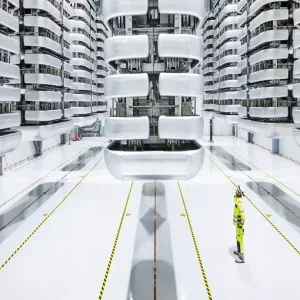
Soletair Power has developed a new concept to improve air quality in building by capturing carbon dioxide (CO2) and converting it to synthetic renewable fuel. The concept is claimed to be an important step towards carbon neutral societies and support’s Wärtsilä’s strategy developing 100% renewable energy sources for the future.
While hydrogen can be produced from renewable energy sources, the startup’s concept captures CO2 from atmosphere and synthesizes it to form hydrocarbons that are suitable as synthetic renewable fuel.
Wärtsilä sees great value and opportunity in the company and is expected to provide global support in development and commercialization of the technology.
Wärtsilä’s Energy Business Strategy and Business Development Director Matti Rautkivi said: “As an energy systems integrator, Wärtsilä understands, designs, optimises, builds and serves complex power systems enabling our customers to create sustainable energy for the future.
“To achieve this, we build strategic partnerships, innovate with startup companies, and actively recruit new talent to strengthen and support our expertise in new business areas.
“Our funding for Soletair Power Oy is a concrete example of this philosophy, and it takes us one step closer to 100% renewable world.”
As per the Finnish power equipment manufacturer, its Smart Energy vision is developing sustainable energy industry for the future. This involves maximization of renewable generation, enabled by integration of flexible energy generating assets together with intermittent renewables.
Soletair Power newly appointed CEO Petri Laakso said: “The Soletair Power solution represents an important stepping stone towards a sustainable future. We are excited to be working with Wärtsilä, a global technology leader and innovator, in bringing this solution to the market.”
In March, Wartsila received a notice to proceed for the proposed liquid biogas (bioLNG) plant to be built in Asker, Norway.
The new facility is expected to include a biogas upgrading and liquefaction plant that will enable VEAS to produce vehicle quality biogas. The project is expected to create an alternative to fossil fuels and reduces CO2 emissions.






